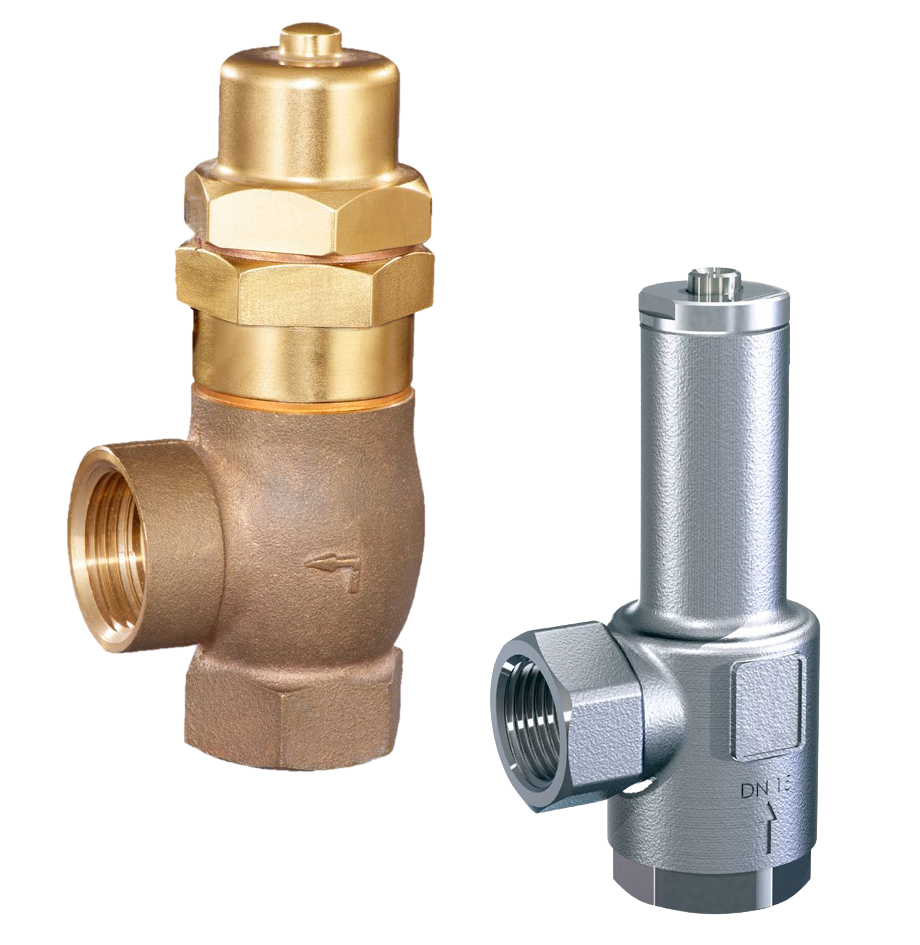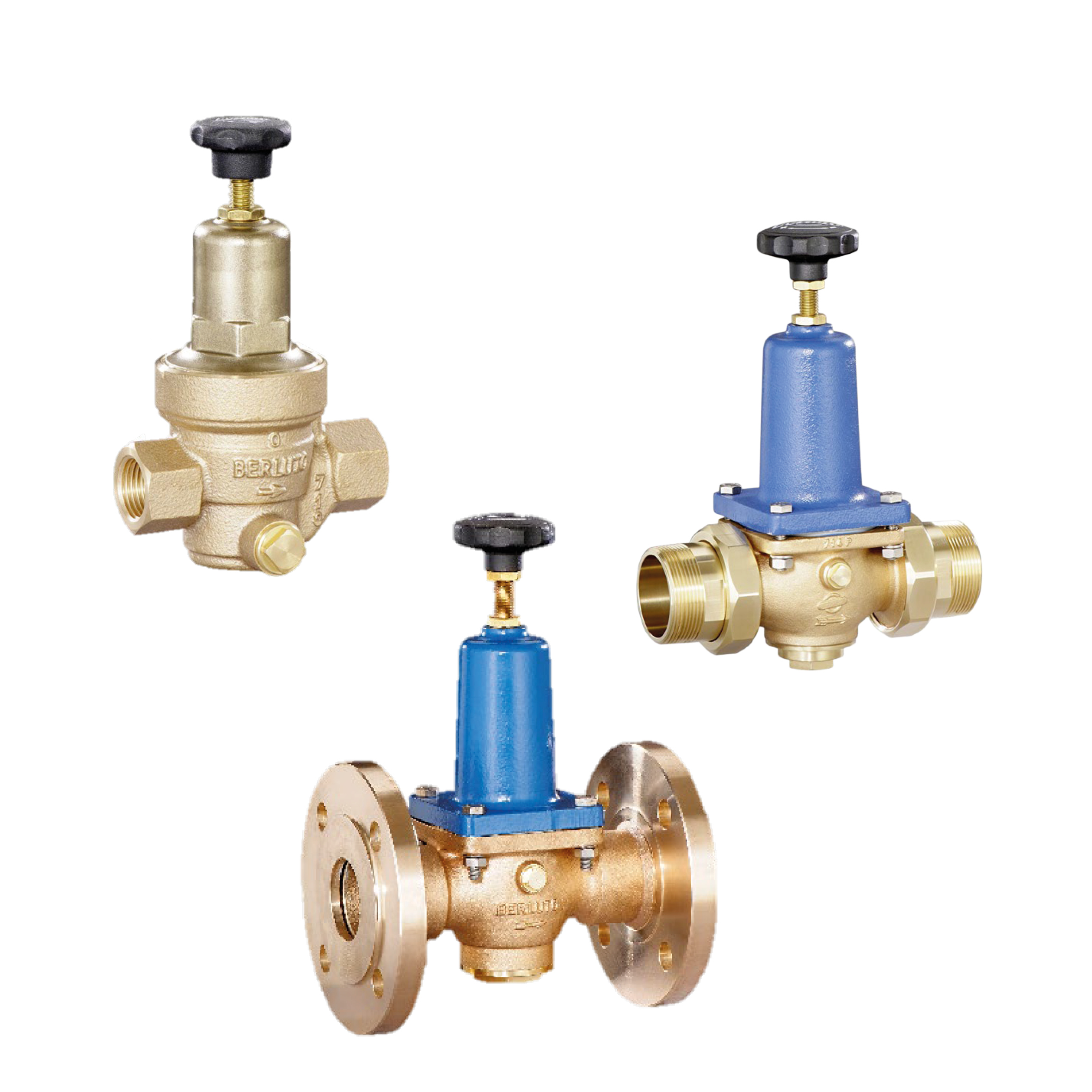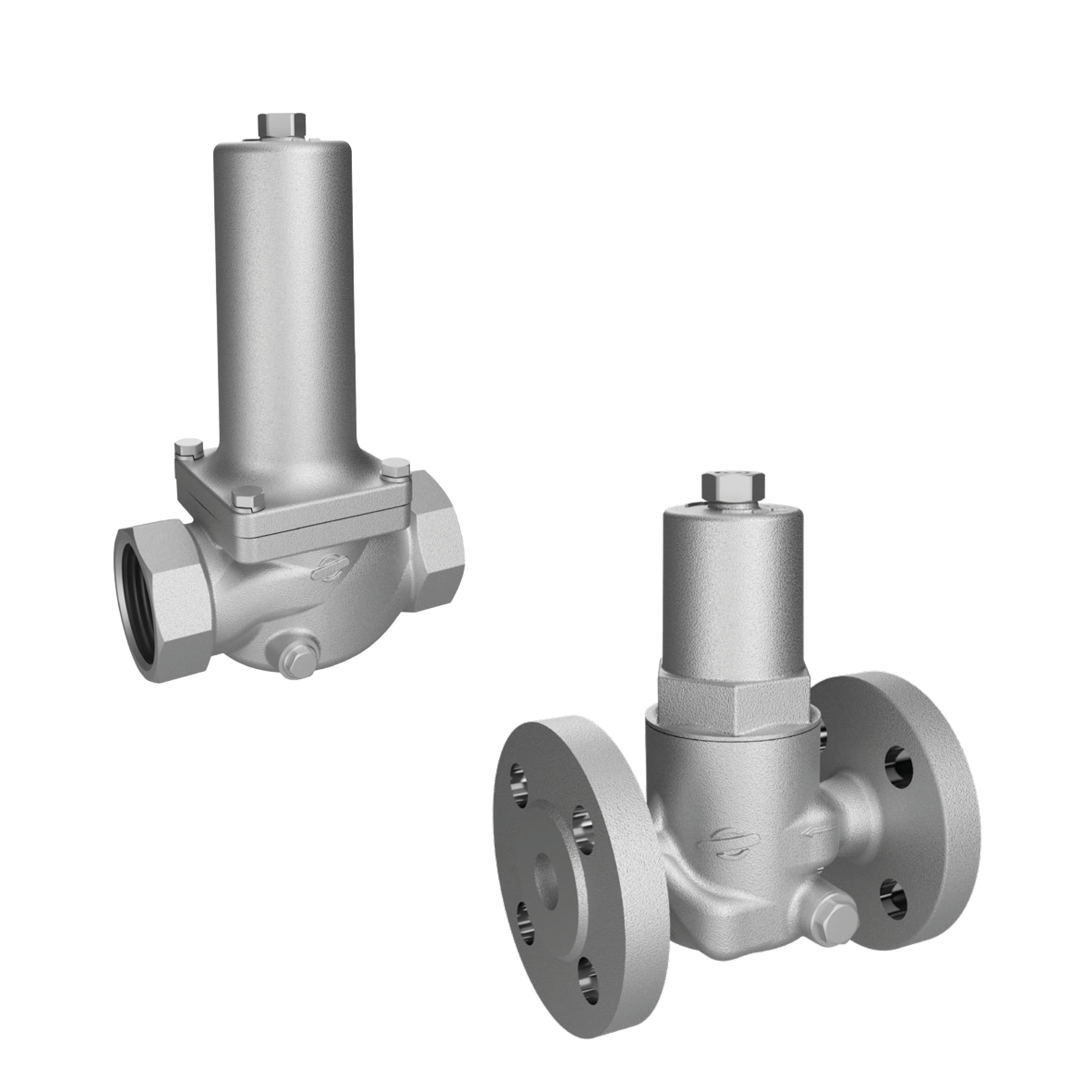Overflow Vavle / Pressure Relief Valve
A pressure relief valve – also known as an overflow valve or pressure relief valve – is primarily designed to protect a system from overpressure. The valve opens automatically when the pressure on the inlet side (P1) exceeds a preset value, diverting the medium safely away. Once the pressure returns to normal levels, the valve closes again. This ensures safe and stable operation without the need for manual intervention.
A pressure relief valve is not a safety valve (PSV) – it is a process valve intended to maintain operational reliability and process control.
We offer spring-loaded pressure relief valves from Berluto, which can be manually adjusted – completely without special tools. The valves are available in both Red bronze and Stainless steel, with either threaded or flanged connections. You can choose between an angle type or straight-through design, depending on your installation needs.
Feel free to contact us for assistance and ordering.
| Properties |
• Threaded and flanged connection
• Dimensions: DN10 – DN50
• Pressure: 20 bar
• Angle or straight-through design
• Available with diaphragm or spring mechanism • Housing material in bronze or acid-resistant stainless steel
• Seals in NBR, FKM, EPDM, and PTFE
• Can be supplied in a variety of configurations to cover a wide range of pressure ranges and applications
|
|---|---|
| Applications |
• Liquids
• Gases
• Air
Pressure relief valves are used in systems handling liquids, gases, or air—such as tanks, pipes, and containers. They prevent overfilling and pressure buildup that could lead to damage or operational shutdowns.
|


